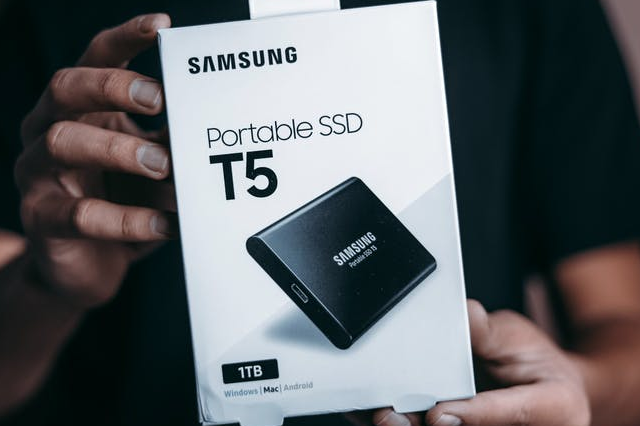If you have come this far, you may not know what an external hard drive is and what it is for. It may also be the case that even if you know what they are, you want to have more information about it. Regardless of your situation, we are going to explain everything you need to know about this device that is very useful in the world of computing.

Despite the growth experienced by cloud storage services, which have come to be the alternative to physical media, external hard drives continue to be a great option to be able to properly keep and store the documents and files that you want to always have. At your disposal, regardless of whether or not you have an internet connection
What is an external hard drive
When we talk about an external hard drive, we refer to a hard drive that is outside the PC, that is, it is connected by other means, the usual being by USB. These types of storage devices are used in the same way as a traditional internal hard drive, that is, to store any desired files.
However, unlike the previous ones, they can be carried comfortably from one place to another. This also allows data to be used and transferred between people or computers with less difficulty. As an external hard drive, both HDDs and SSDs are included, so popular in recent years for their higher speeds.
In any case, you should bear in mind that there are no differences between an internal and an external hard drive of the same type. The only thing that differentiates them is the format in which they are presented. External hard drives are usually internal drives that have been inserted into a case, through which they are connected via USB to the computer.
These types of housings are used in the form of an adapter. They have the corresponding connection interface for this. In addition to the aforementioned USB, they can be presented with other types of connectors such as east, Thunderbolt, FireWire and even be wireless. In some cases they need an additional power cable, although it is not the most common.
What are external hard drives used for?
External hard drives are prepared to be portable, that is, to be able to insert the desired files and transport or copy them to another device or computer in a simple way. In addition, since they are not inside a computer case, they are an excellent way to enjoy a greater storage capacity.
In a way, they work similarly to a USB flash drive, although the storage capacity of an external hard drive is much higher, as are the read and write speeds. This means that external hard drives can be used to expand the storage capacity of a system. It should also be noted that they have a very widespread use and that it is to use them to make backup copies of a computer.
Differences between external and internal hard drives
Being clear about the above, it is important that you know that external drives do not offer the same behavior as internal ones. The reason for this is that although they are a similar device, the communication is not the same.
Internal hard drives connect to the motherboard directly through SATA or Pie connections. This allows a faster and more direct connection with the different components. These interfaces are faster and perform better than what you can find when using external drives.
For example, through the SATA connection it is possible to reach speeds of 600 Mb/s and with Pie of 1 GN/s constantly, while USB, even if they are of the latest generation, will not be able to reach these values, at least not so far. Constant.
Also, there is another difference in terms of its use. While internal hard drives are commonly used to store system and software files, external hard drives are commonly used for multimedia content, such as videos, photos, music…
However, despite all of the above, external hard drives are very useful and therefore it is highly recommended to have at least one of them. In fact, it is one of the most demanded and purchased electronic accessories by consumers.
These, as with any other complement or device, may vary their operation depending on the model in question. This means that both the reading and writing speeds will depend on the chosen model. In other words, there may be big differences between the performance of one or the other depending on the model you prefer to decide on.
For this reason, it is recommended to compare before the purchase between different options according to the speeds that it can offer. The better performance it can offer, the more expensive the hard drive will be.

